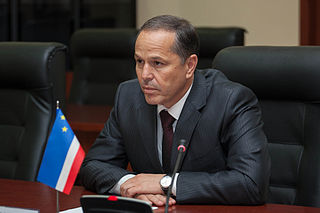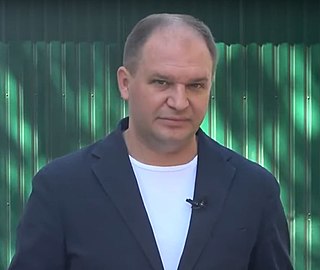The elections in Taiwan each held every four years, typically in January and November. Since 2012 the previously eleven types of elections in Taiwan have been unified into general and local elections. There may also be by-elections. Electoral systems include first-past-the-post, proportional representation, single non-transferable voting, and a parallel mixture of the above.

France is a unitary semi-presidential republic with a bicameral legislature. Public officials in the legislative and executive branches are either elected by the citizens or appointed by elected officials. Referenda may also be called to consult the French citizenry directly on a particular question, especially one which concerns amendment to the Constitution.
Some parts of the Government of Thailand are selected through democratic elections. These include the House of Representatives of Thailand,, local Administrations, Governorship of Bangkok and national referendums. Thailand has so far had 28 general elections since 1933; the last election was in 2023. Voting in elections in Thailand is compulsory. All elections in Thailand are regulated by the Election Commission of Thailand.

Moldova elects a legislature at national level. The Parliament (Parlamentul) has 101 members, elected for a four-year term by proportional representation with a 6% electoral threshold. The President used to be elected for a four-year term by a constitutional majority of 60% members of the Parliament, but a Constitutional Court's ruling on 4 March 2016, reverted the election method of the President to a two-round system direct election.

There are three types of elections in Nepal: elections to the federal parliament, elections to the provincial assemblies and elections to the local government. Within each of these categories, there may be by-elections as well as general elections. Currently three electoral systems are used: parallel voting for the House of Representatives and provincial assemblies, single transferable vote for the National Assembly, and first-past-the-post for local elections.
Elections in South Korea are held on a national level to select the President and the National Assembly. Local elections are held every four years to elect governors, metropolitan mayors, municipal mayors, and provincial and municipal legislatures.
The deputy mayor is an elective or appointive office of the second-ranking official that is present in many, but not all, local governments.
A municipal council is the legislative body of a municipality or local government area. Depending on the location and classification of the municipality it may be known as a city council, town council, town board, community council, rural council, village council, or board of aldermen.

Serafim Urechean is a Moldovan politician. He held the position of general mayor of Chișinău municipality (1994–2005) and interim prime minister of the Republic of Moldova. He was the chairman of the party Our Moldova Alliance (2003–2011), first deputy chairman of the Parliament of the Republic of Moldova (2009–2010) and president of the Court of Accounts of the Republic of Moldova (2011–2016).

Liberal Party is a conservative-liberal political party in Moldova. The president of the party is the former Mayor of Chișinău, Dorin Chirtoacă.
Veaceslav Iordan is a Moldovan politician who served as interim Mayor of Chișinău from January to June 2007.

Mihail Formuzal is a Moldovan politician of Gagauz ethnicity, who was the governor of the Autonomous Territorial Unit of Gagauzia from December 2006 to March 2015.

Municipal elections in France allow the people to elect members of the City Council in each commune. These are called conseillers municipaux. They elect the mayor, who chairs the city council, as well as Deputies to the Mayor. The term of office of councilors, the mayor and his deputies is, in principle, six years.

In France, a municipal council is an elected body of the commune responsible for "executing, in its deliberations, the business of the town" (translated).

In France, a mayor is chairperson of the municipal council, which organises the work and deliberates on municipal matters. The mayor also has significant powers and their own responsibilities, such as the responsibility for the activities of municipal police and for the management of municipal staff.

Senators in France are elected by indirect universal suffrage, by a panel of "electors". Half of the Senate seats are up for election every three years; the term of office is six years.

Municipal elections were held in Bosnia and Herzegovina on 2 October 2016 to elect mayors and assemblies in 143 municipalities.

Local elections were held in Moldova on 20 October 2019, with a runoff for mayors held two weeks later.

Ion Ceban is a Moldovan politician, and the current mayor of Chișinău, Moldova's capital. He is also the leader of the pro-European National Alternative Movement party. Ceban was Vice President of the Moldovan parliament in 2019 and has served as a member of parliament in three legislatures. He also served as a leader of his party's faction in the Chișinău Municipal Council from 2015 to 2019. He has held different positions at the governmental level, starting from the head of a department to Deputy Minister.
The 2021 Georgian local elections were held on 2 and 30 October to elect the bodies of local government of Georgia.










